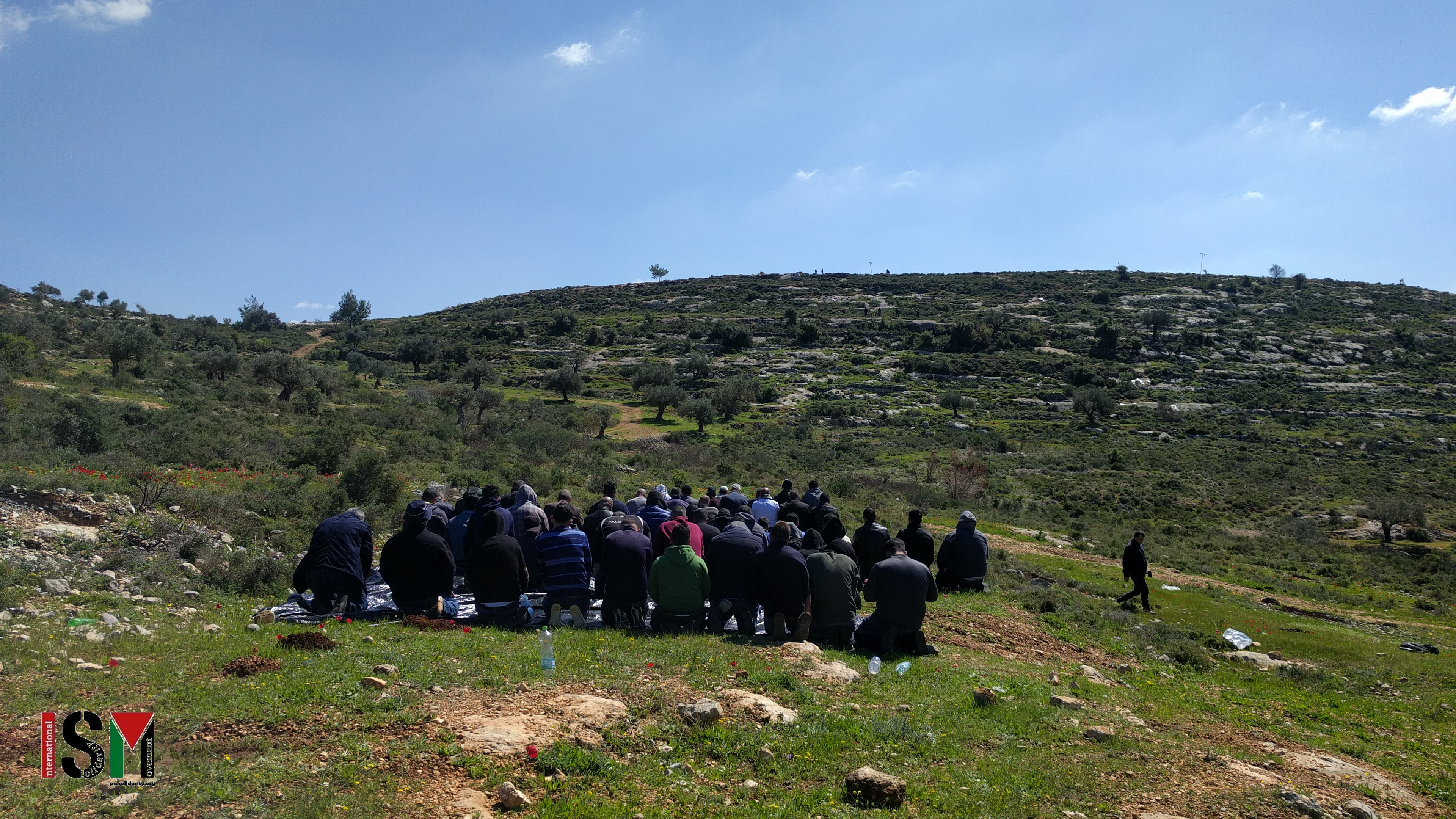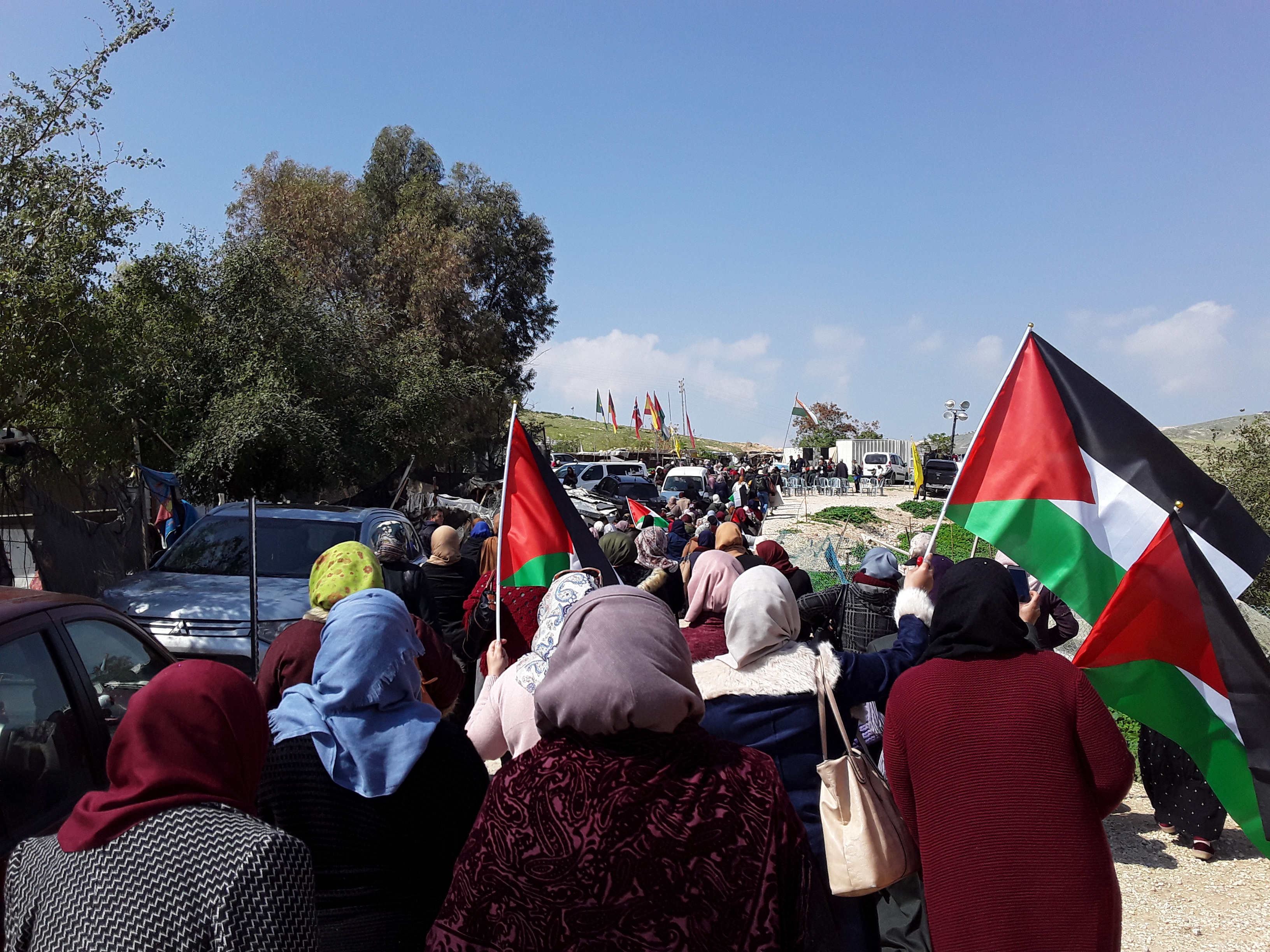Tag: Demonstration
-
Soldiers invade Al-Khalil; fire live ammunition at protesters
April 5, 2019 | International Solidarity Movement, Al-Khalil team | Al-Khalil (Hebron), occupied Palestine Israeli occupation forces storm into Al-Khalil and fire live ammunition at protesters after bombarding the city with tear gas, stun grenades, and rubber-coated steel bullets. Around 1pm soldiers invaded Al-Khalil through checkpoint 56. The soldiers fired stun grenades at protesters. Immediately…
-
Prayers end with tear gas in Ras Karkar
March 8, 2019 | International Solidarity Movement, Al-Khalil team | Ras Karkar, occupied Palestine This Friday, the inhabitants of the villages around Mount al-Risan–where an outpost has been established by illegal settlers on Palestinian land–gathered for a day of peaceful protest and prayer. As soon as the religious ritual ended, the military ritual began. Before…
-
Women from across Palestine gather in Khan al-Ahmar, call for resistance
March 6, 2019 | International Solidarity Movement, Al-Khalil team | Hebron, occupied Palestine Hundreds of women from all over Palestine met in Khan al-Ahmar on Wednesday March 6. The meeting was a response to a call for solidarity made by the General Union of Palestinian women and the residents of Khan al-Ahmar, as…



